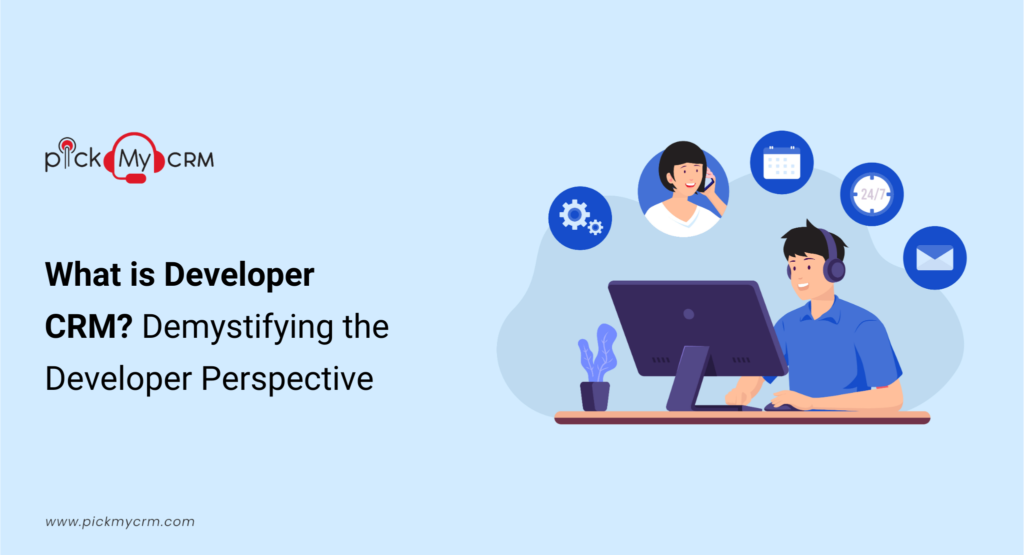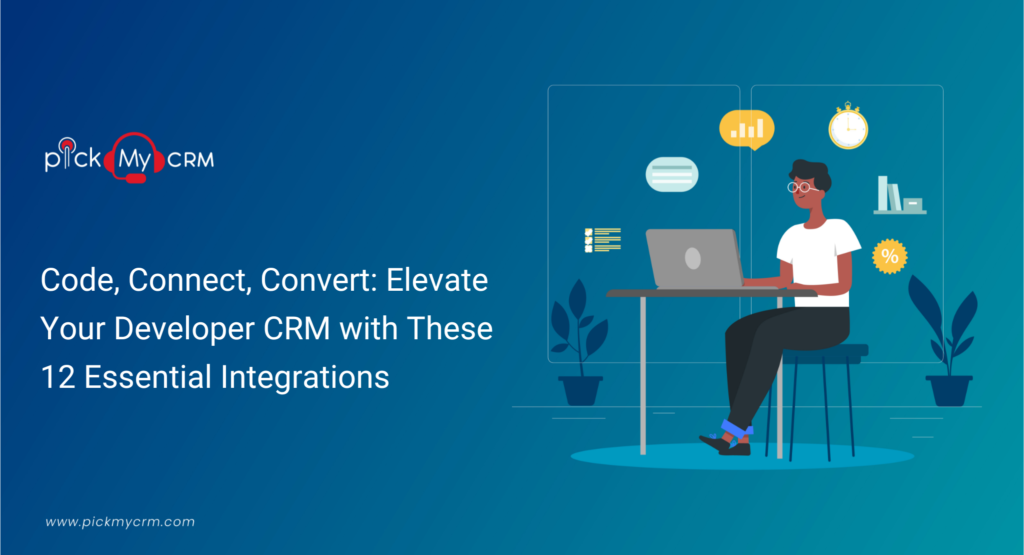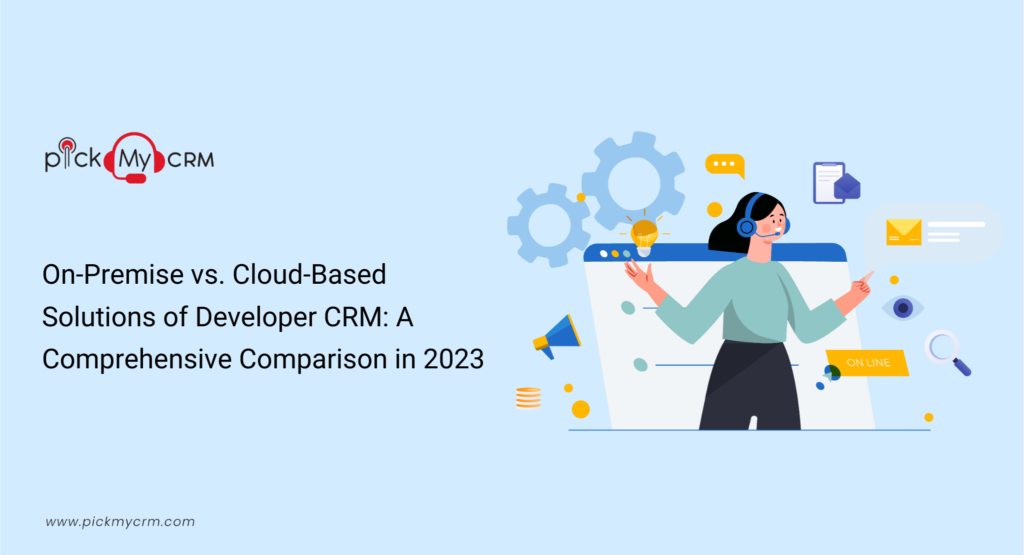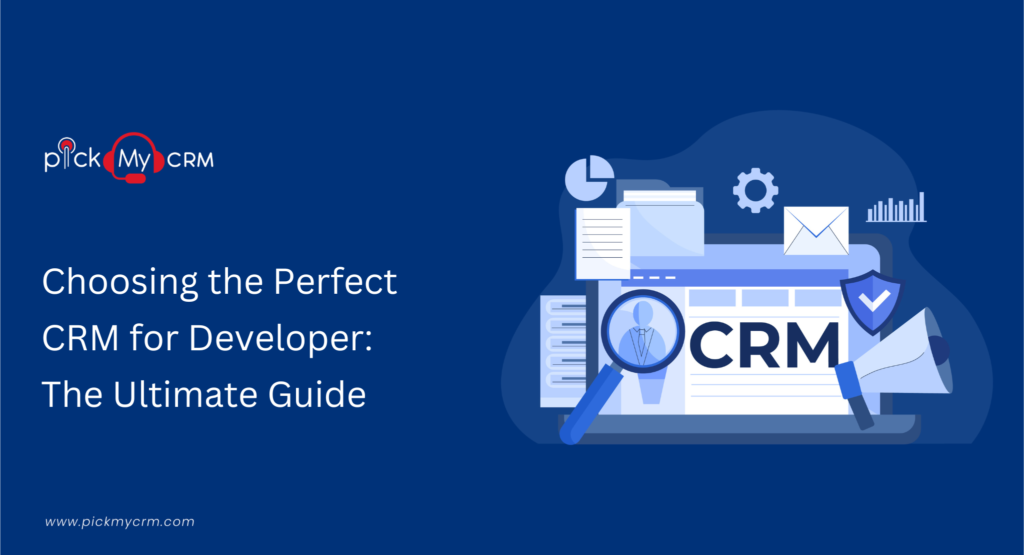What is Developer CRM? Demystifying the Developer Perspective
What is Developer CRM?
Developers CRM is a tailored software solution crafted to address the Distinct requirements and obstacles encountered by Developers when managing and nurturing customer relationships. It goes beyond traditional CRM systems, offering features and functionalities tailored for software professionals. By integrating customer data, streamlining communication, and providing project management tools, CRM for developers enables developers to optimize their processes, enhance productivity, and foster meaningful customer connections.Why Developer CRM?
Enhanced Customer Relationships
CRM for developers empowers software professionals to build and nurture strong customer relationships. By Centralizing customer data, tracking interactions, and gaining insights into their preferences and needs, developers can deliver personalized experiences, anticipate customer requirements, and cultivate long-term loyalty.Streamlined Workflows
Developers face complex tasks and juggle multiple projects simultaneously. A CRM system provides tools to streamline workflows, automate routine tasks, and optimize processes. By reducing manual effort and increasing efficiency, developers can focus on delivering high-quality work and meeting project deadlines.Improved Communication and Collaboration
Effective communication is vital in software development. CRM for developers offers features that Facilitate seamless communication and collaboration between developers and clients. It centralizes all client interactions, including emails, messages, and calls, enabling developers to track communication history, respond promptly, and ensure that nothing falls through the cracks.Data-Driven Decision Making
CRM systems offer powerful reporting and analytics capabilities. Developers can analyze project performance metrics, team productivity, and customer satisfaction data. By leveraging these insights, developers can make data-driven decisions, identify areas for improvement, and refine their development processes for better outcomes.Efficient Project Management
CRM for developers includes project management functionalities tailored to the software development process. Developers can track project progress, set milestones, assign tasks, and allocate resources effectively. These results in better project planning, improved collaboration, and increased chances of successful project outcomes.Personalization and Customization
CRM for developers enables developers to deliver customized solutions to meet specific customer requirements. By capturing and analyzing customer data, developers gain a deeper understanding of individual preferences, allowing them to tailor their offerings and provide personalized experiences that exceed customer expectations.Scalability and Growth
CRM Systems for developers are Designed to accommodate the evolving needs of software professionals and their growing client base. These systems are Scalable, Allowing developers to manage larger projects, handle increased workloads, and support business growth over time.Integration Capabilities
CRM for developers can integrate with various development tools and platforms, such as project management software, version control systems, and bug-tracking tools. This integration streamlines workflows, reduces duplication of effort, and enhances productivity by allowing developers to work within their preferred environments.Essential Skills for Developer CRM
- Programming Languages: Proficiency in programming languages such as Java, C#, Python, or JavaScript is essential for CRM developers to develop and customize CRM solutions.
- CRM Platforms: Familiarity with popular CRM platforms like Salesforce, Microsoft Dynamics 365, or HubSpot CRM is Important to understand the underlying architecture and functionalities.
- Database Management: Knowledge of database concepts, SQL, and data modeling is crucial for CRM developers to design and optimize database structures within CRM systems.
- Web Development: Strong skills in web development technologies like HTML, CSS, and JavaScript are necessary for creating user interfaces, integrating CRM with websites, and developing custom CRM modules.
- Integration and APIs: Understanding API concepts and experience with integration tools like REST and SOAP APIs enable CRM developers to connect CRM systems with external applications and services.
- Problem-Solving and Troubleshooting: CRM developers should possess excellent problem-solving skills to identify and resolve technical issues, system integration challenges, and customizations.
- CRM Customization and Configuration: Proficiency in customizing and configuring CRM systems based on client requirements, including workflows, data fields, reports, and dashboards, is vital for CRM developers.
How to Become a CRM Developer
- Learn Programming Languages: Master a programming language such as Java, C#, Python, or JavaScript to develop CRM solutions.
- Gain CRM Platform Knowledge: Familiarize yourself with popular CRM platforms like Salesforce, Microsoft Dynamics 365, or HubSpot CRM by exploring online resources, documentation, and official training.
- Database Management Skills: Learn about database concepts, SQL, and data modeling to effectively manage CRM databases.
- Web Development Proficiency: Gain Proficiency in HTML, CSS, and JavaScript for Web Development and Crafting CRM User Interfaces.
- API Integration Understanding: Gain knowledge of APIs, REST, SOAP, and integration tools to connect CRM systems with external applications and services.
- Gain Hands-on Experience: Seek practical experience by working on CRM projects, either through internships, freelancing, or contributing to open-source CRM projects.
- Continuous Learning: Stay updated with the latest CRM trends, technologies, and best practices by attending workshops, webinars, and industry events. Also, explore certifications provided by CRM platform vendors to enhance your credibility.
- Build a Portfolio: Showcase your CRM development skills by creating a portfolio of CRM projects and customizations you have worked on. It will help demonstrate your capabilities to potential employers or clients.
- Networking and Collaboration: Engage with CRM developer communities, attend meetups, and participate in online forums to connect with industry professionals and gain insights into the CRM development landscape.
When to Implement Developer CRM?
Implementing a Developers CRM, or Customer Relationship Management system tailored for developers, can significantly enhance your software development business or freelance career. Here's when it's most beneficial,Early Stage/Foundation
During the initial stages of your software development venture or freelance career, a developer's CRM lays a robust groundwork for effective customer relationship management. It aids in the organization of client data, lead tracking, and nurturing initial client connections.Rapid Growth Phases
Amidst rapid business expansion, juggling customer relationships and project pipelines can pose a significant challenge. A developer's CRM guarantees efficient handling of heightened client loads and the maintenance of uniform client interactions.Complex Projects and Diverse Clients
In intricate projects with multiple stakeholders or a Diverse client base, a Developer's CRM is Vital. It assists in navigating project complexities, efficiently streamlining communication, and ensuring control over project requirements and timelines. Developer's CRM is indispensable, guiding you from client acquisition and relationship-building to navigating growth and complex projects with diverse clients.Where to Implement Developer CRM
- Development agencies and software companies that handle multiple client projects simultaneously and require streamlined operations and collaboration.
- Client Feedback Loop: Use it to capture client feedback and incorporate improvements into future projects.
- Freelancers and independent developers who want to effectively manage client relationships, track project progress, and maintain centralized customer data.
- Project Lifecycle: Implement it throughout the entire project lifecycle, from planning and development to testing, deployment, and ongoing maintenance.
Considerations for Implementation of Developer CRM
- Evaluate the stage of your business and growth trajectory to determine the optimal timing for CRM implementation.
- Assess the complexity of projects and the diversity of clients to identify the need for streamlined processes and communication.
- Understand the specific requirements of your development environment and the potential benefits CRM can provide.
Features of Developer CRM
Developer's CRM systems offer a range of features tailored to meet the unique needs of software developers and development teams. Some key features include,- Project Tracking: Efficiently manage development projects and track progress.
- Client Communication: Facilitate seamless client communication and log interactions.
- Code Repository Integration: Connect with code repositories for version control and collaboration.
- Technical Support Management: Handle support requests and ensure prompt issue resolution.
- Customization: Tailor CRM workflows and fields to match development processes.
- Analytics and Reporting: Gain insights into project performance and client engagement.
- Lead and Opportunity Management: Track potential clients and prioritize opportunities.
- Integration Capabilities: Seamlessly integrate with other development tools.
- Automation: Automate routine tasks like client onboarding and invoicing.
- Scalability: Adapt the CRM to accommodate business growth.
Types of Developer CRM
Different types of Developers CRM,- Cloud-Based CRM: Web-hosted, accessible from anywhere, offers flexibility and scalability.
- On-Premises CRM: Installed on servers, provides data control but requires maintenance.
- Open-Source CRM: Customizable, adaptable to specific developer needs.
- Custom CRM: Bespoke systems built to unique developer or organizational requirements.
- Mobile CRM: Designed for mobile devices, ideal for on-the-go developers.
- Free CRM: Basic tools with no cost, suitable for smaller businesses or freelancers.
- Enterprise CRM: Comprehensive systems with advanced features for larger organizations.
Top 3 Developer CRM
Salesforce Developer Edition
Overview: Salesforce is a leading CRM platform offering extensive customization, integration options, and scalability. The Developer Edition is tailored for developers, allowing for sandbox testing and custom application development. Benefits and Features- Strong developer community
- A vast third-party app marketplace
- Flexibility in building custom solutions.
- Customization and automation
- Workflow management and analytics.
- Robust API support.
HubSpot CRM
Overview: HubSpot CRM is a user-friendly system with robust automation, analytics, and integration options. It is suitable for businesses of all sizes and can Customized by developers. Benefits and Features- Easy to use
- Free for core features
- Scalability for growing businesses.
- Contact management and email tracking
- Task automation
- Integration with HubSpot's marketing and sales tools
- A developer-friendly API.
Zoho CRM
Overview: Zoho CRM is known for its customization options and scalability. It caters to businesses of all sizes and includes features specifically designed for developers. Benefits and Features- Customizable workflows and automation
- A variety of integrations.
- Lead and contact management, analytics, customizable modules, API support, and mobile accessibility.
The Role of Developer CRM
CRM developers are essential for organizations, ensuring the efficient implementation and customization of CRM systems to meet unique business requirements. Their role encompasses design, development, and system maintenance. They play a role in customizing and configuring CRM systems, integrating them with other applications and databases, and ensuring seamless data flow. Additionally, CRM developers provide user support, troubleshoot technical issues, and conduct system analysis to propose improvements and enhancements. With their expertise, developer's CRM enables organizations to optimize customer relationship management, streamline processes, and drive business growth through the Effective Utilization of CRM technology.Future Trends and Innovations in Developer CRM
- CRM systems will use AI and ML for Smart automation, insights, and suggestions, empowering CRM with better productivity and decision-making.
- Voice-enabled CRM platforms Empower developers to interact with the system using voice commands, Enhancing the convenience and efficiency of data access and task management.
- Blockchain technology will enhance data security and privacy in Customer Relationship Management systems, ensuring the integrity and confidentiality of customer data through decentralized and immutable record-keeping.
- Predictive analytics grants developers real-time insights into customer behavior, enabling proactive responses and personalized solutions.
- CRM-IoT integration empowers developers with real-time device data, fueling innovation and proactive customer support.




